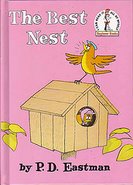 "Not a single cosmetic company warns consumers of the presence of carcinogens in its products - despite the fact that several common cosmetic ingredients or their contaminants are carcinogenic themselves or are carcinogenic precursors."
"Not a single cosmetic company warns consumers of the presence of carcinogens in its products - despite the fact that several common cosmetic ingredients or their contaminants are carcinogenic themselves or are carcinogenic precursors."I use Nicole Miller products provided through Melaleuca. This is a simple way to buy cosmetics that are safe, top quality, reasonable priced and satisfactio n guaranteed.
n guaranteed.
 n guaranteed.
n guaranteed."Consumers have an inalienable right to know what ingredients are in products they use daily, and to be certain that chemicals posing chronic health risks will be phased out when alternatives are available. These are rights regardless of one's perception of the risk of the ingredient. Yet walk down the aisle of any supermarket and you will quickly see how minimal regulation has led to grossly inadequate labeling."
"How bad is the situation? Some leading household products do not disclose to the consumer that they contain carcinogens, neurotoxins or other hazardous substances. Shoppers may choose these products anyway and may want to continue using them, but deserve complete labeling information to make an informed choice."
"Government and industry have failed abysmally to protect consumer health adequately; at the very least, they have failed to inform consumers fully of the hazardous ingredients used in household products, cosmetics and foods. This glaring void leaves consumers at peril, uninformed and feeling powerless and frightened by the lack of information. One of the major reasons for our publishing the Safe Shoppers Bible is to empower you to transform your lifestyle into one that is healthier, more natural and in greater harmony with the health of our environment."
"The major dilemma for consumers anxious to find safe products is that they do not know where to turn for information. The only consumer guides available today stress homemade alternatives to household products or point up only those often more expensively priced brands available through health food markets and mail order. But most people today are so busy making a living, taking care of their children, and doing other daily chores that they do not have the time or patience to mix their own household cleaners or make their own laundry soap and cosmetics."
"The Safe Shoppers Bible is designed as tool to help shoppers find the safest foods and consumer products, whether major or alternative brands. Several thousand brands of consumer products have been evaluated."
"Occasionally, recommend brands are available only at health food stores or through mail order catalogs that specialize in environmentally safe products. But simply shopping in a health food store is no guarantee of buying the safest products or foods. Many health food stores sell foods grown with pesticides and consumer products that are no safe (and often more expensive) than those found in your favorite major supermarket. Furthermore, many of their health products make false or misleading claims."
"The Consumer Product Safety Commission (CPSC), an independent regulatory agency created in 1972, is charged with ensuring that common consumer household products are safe from unreasonable risk of injury and death. The CPSC has jurisdiction of more than fifteen thousand consumer products. Yet manufacturers of household products are not required to disclose any of their hazardous ingredients used in their products. Federal regulations do require manufacturers to provide minimal label information, but not for carcinogenicity, neurotoxicity, or reproductive effects, which hardly constitutes adequate disclosure. Disclosure of harmful ingredients will remain minimal as long as responsibility for disclosure rests with manufacturers and government oversight remains minimal."
"Our goal is to encourage industry to provide consumers more information and to produce safer products by reducing reliance on toxic chemicals."
Quotes have been provided by:
- Shelley Kramer, Chapter Head for the Los Angeles Chapter of the Cancer Prevention Coalition.
- The Breast Cancer Action web site
- The Safe Shopper's Bible: A Consumer's Guide to Nontoxic Household Products, Cosmetics, and Food by David Steinman & Samuel S. Epstein, M.D. published by Macmillan USA 1995 New York.







No comments:
Post a Comment